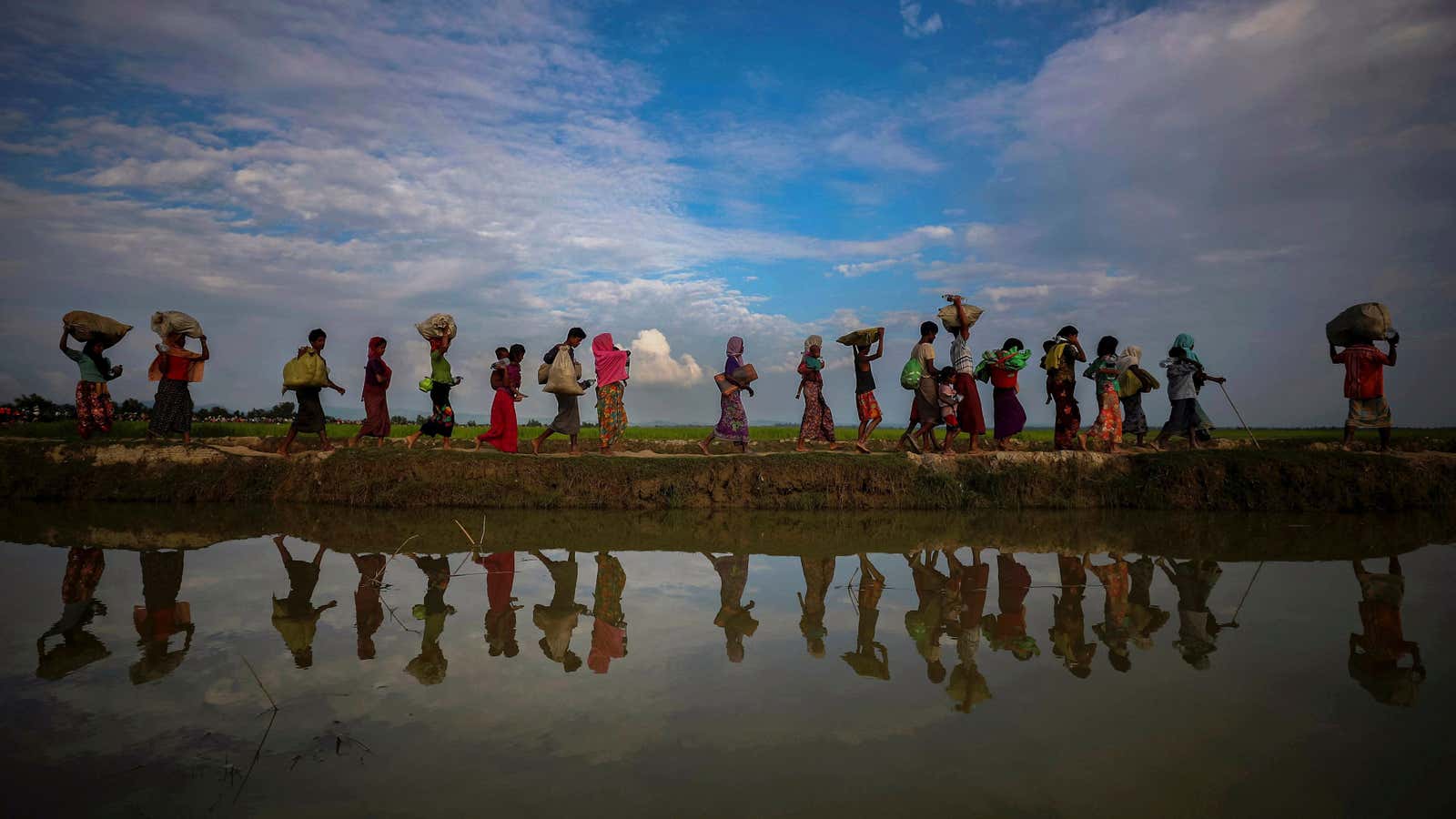Senior military leaders in Myanmar must be prosecuted for genocide and war crimes against the Rohingya Muslims, concludes a United Nations report released today.
A UN fact-finding mission established in March 2017 accuses Myanmar’s military, known as the Tatmadaw, of murder, rape, torture, false imprisonment, and sexual slavery (pdf. p. 15). It says the abuses, which also involved other security forces, took place not only in the western state of Rakhine, home to the Rohingya, but also in the northern states of Kachin and Shan.
A key problem, the authors write, is that “impunity is deeply entrenched in Myanmar’s political and legal system, effectively placing the Tatmadaw above the law,” giving civilian authorities little scope to control its actions. But the researchers don’t let government leaders off the hook. They say Aung San Suu Kyi, who won the Nobel Peace Prize and now serves as state counsellor—a position akin to prime minister—used neither her moral authority nor her de facto position as head of government to stave off the events in Rakhine.
The report concludes that the large-scale violence and exodus to neighboring Bangladesh triggered by the events of Aug. 25, 2017—when the Tatmadaw responded with massive, disproportionate force to attacks on security outposts by an obscure Rohingya insurgent group—was a “catastrophe looming for decades.” It paints the tragedy as the inevitable result of “severe, systemic, and institutionalized oppression from birth to death” of the Rohingya, who were persistently denied citizenship and severely restricted in movement. It also notes that a large build-up of troops and other military assets had already begun in the area earlier that same month, suggesting a “a level of preplanning and design.”
In addition to documenting mass killings, gang rapes, and the scorching of Rohingya settlements by the Tatmadaw, the researchers conclude that both the military and government “fostered a climate in which hate speech thrives, human rights violations are legitimized, and incitement to discrimination and violence facilitated.” The report notes that in 2012 a leading political party in Rakhine cited Adolf Hitler, arguing that “inhuman acts” were sometimes necessary to “maintain a race.”
The report provides names of specific military leaders who should be prosecuted for genocide in Rakhine, calling for individual sanctions against them. Given the military’s impunity within Myanmar, it also calls for the International Criminal Court to take up the matter, or for an ad hoc tribunal to be created.
